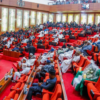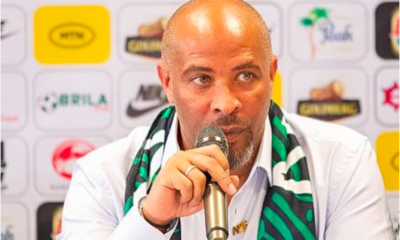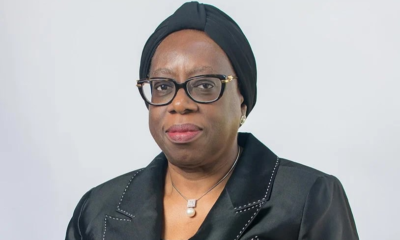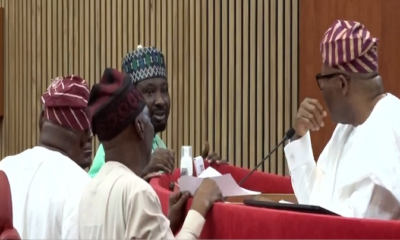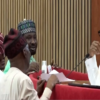Latest News
Shettima: FG Reforms Could Lift 50 Million Nigerians Out of Poverty Within a Decade

He explained that the plan rests on three strategic pillars investment in infrastructure, promotion of inclusion, advancing agriculture and value addition.
“Our Poverty Exit Plan is multifaceted and relentless. It is built on three strategic pillars, investing in critical infrastructure, driving financial and economic inclusion, and encouraging value-addition and mechanised agriculture.”
Shettima highlighted early positive outcomes, including higher reserves, narrowing fiscal deficit, rising non-oil exports, and stabilising inflation, projecting that poverty and inequality could be drastically reduced by 2026.
“If we remain consistent in our application of these policies, our government is confident that we will see GDP growth soaring, inequality reducing drastically, food and multidimensional poverty crashing, and inflation potentially reaching single digits by 2026.”
The Head of Delegation of the European Union to Nigeria and ECOWAS, Ambassador Gautier Mignot, underscored that poverty reduction must be driven primarily by sound domestic policies. International partners, he noted, can support but cannot substitute local leadership.
He said, “Poverty reduction is not just a moral duty, it is a political, social, and economic imperative. It reduces instability, strengthens democracy, and drives productivity.”
He stressed the need to listen to the voices of poor communities, not just statistics, and pointed to Nigeria’s entrepreneurial spirit especially among women as a powerful force for poverty reduction. He revealed that the EU has committed over €87 million to strengthen Nigeria’s social safety nets and resilience programmes, alongside €150 million in humanitarian support to address food insecurity affecting 33 million Nigerians.
From the state level, Professor Chidiebere Onyia, Secretary to the Government of Enugu State, shared lessons from the state’s multi-sectoral interventions in education, agriculture, and health, which he said are shifting the focus from poverty reduction to poverty eradication.
In his welcome remarks, Dr. Ndubuisi Nwokolo, Partner at Nextier Development Foundation, stressed the need to move beyond short-term fixes and token interventions.
“Money alone does not eradicate poverty. Neither do rice distributions nor handing out sewing machines. We must dig deeper and embrace sustainable, evidence-based solutions,” he said.
Nwokolo urged stakeholders to scale up local innovations, harness Nigeria’s youthful population, and adopt a whole-of-society approach that integrates government, civil society, private investors, and academia.
Patrick Okigbo III, Founding Partner of Nextier, echoed this call, noting that the festival was designed to bring together thoughtful leaders and innovators to co-create practical solutions.
“We refuse to accept that poverty is unsolvable. The time to end it is now, with the right partnerships, policies, and political will,” Okigbo said.
With 40% of Nigerians over 82 million people still below the poverty line, the challenge remains daunting, but stakeholders agreed that a mix of consistent policies, grassroots innovations, and international cooperation could set the country on a path to shared prosperity. Nextier Push For Reforms To End Poverty in Nigeria
Meanwhile, the nation’s fight against poverty received a renewed boost on Tuesday as government leaders, development partners, academics, and civil society actors converged at the Nextier Development Solutions Festival (DevFest2025) in Abuja to chart bold pathways for poverty eradication.


